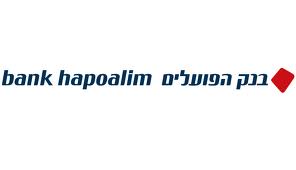 Tel Aviv, March 19 – Bank HaPoalim became the first Israeli bank to release its government-mandated fee schedule today, announcing three packages for different levels of account activity that will allow Israelis to pay less than they have been paying to use money that belongs to them in the first place.
Tel Aviv, March 19 – Bank HaPoalim became the first Israeli bank to release its government-mandated fee schedule today, announcing three packages for different levels of account activity that will allow Israelis to pay less than they have been paying to use money that belongs to them in the first place.
Banking regulators will require all Israeli banks to offer such a set of “tracks” to their customers, as an alternative to the line fee of 1.21 shekels (about 35 cents) that applies to every transaction: deposits, withdrawals, checks drawn, and payments made. On top of those fees, other additional charges often apply, for example when performing a transaction through an actual teller at the bank. Regulators feared that the gouging of the customer had reached dangerous levels, and that nothing would be left over for the government to tax.
The new tracks will take effect across all banks in April, with each bank following the same set of guidelines in establishing its fee schedule. Analysts initially expressed surprise at Bank HaPolalim’s numbers, as they had expected the bank to charge more for people to have access to the money that belongs to them but that the bank invests and keeps all the profits for itself.
“This has the potential to save your average imaginary family more than a hundred shekels per month,” said Bank HaPoalim spokesman Ebeneezer Scroogeman. “The expanded-plus track, the highest of the three service levels, would cost upwards of 130 shekels per month in per-transaction fees, instead of the 32-shekel flat fee for the same number of transactions,” he explained, noting that no financially competent person would fail to consolidate his transactions into a smaller number of larger ones, which would probably add up to less than 32 shekels per month under the old system.
The new regulations only cover certain basic account services such as checking accounts. Banks will still be permitted to create money for themselves out of thin air by lending nonexistent funds to borrowers and charging interest on top of the principal they never had to part with in the first place, a practice that accounts for a far larger share of bank profits than the fees charged to people and businesses that actually have to work to earn their money.




